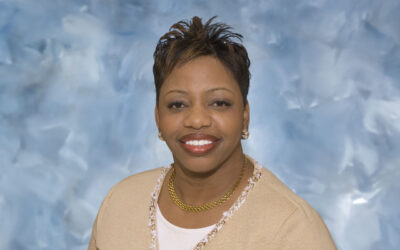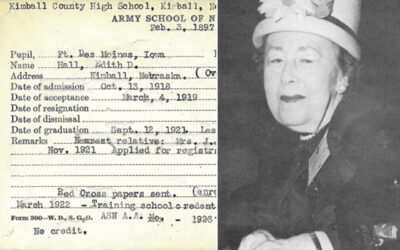By Matt Skoufalos
From the time she was 16 years old, Rosanna Pollack knew she wanted to work in pediatric medicine. From the time she was 18, Pollack knew she’d be working in oncology. In December, she’ll enter her 21st year in the field, a pediatric nurse practitioner in neuro-oncology at the Children’s Hospital of Philadelphia (CHOP) in Pennsylvania.
Pollack traces her interest in caring for very ill children to the Erma Bombeck book, “I Want to Grow Hair, I Want to Grow up, I Want to Go to Boise: Children Surviving Cancer.” It relates the anecdotes of pediatric cancer survivors with a humorist’s insight. Pollack, who read it as a teen, was smitten from the beginning. She said the book steeled her resolve to pursue nursing.
“I knew it was a calling,” she said. “I knew that being a nurse, I could be able to navigate my own career. I felt like there was so much opportunity in nursing.”
After an undergraduate internship at CHOP, Pollack began an externship there while she finished school. When she graduated in 1994, Pollack was able to leverage that externship into a full-time position at the hospital. She began in the adolescent unit, working with patients battling a variety of diseases.
Pollack later transitioned to the ICU while working on her master’s degree, but still had her sights set on an oncological assignment. Yet, even with an advanced degree, hiring managers wanted candidates with oncology experience. Just 25, she entered the interview with a chip on her shoulder. She’d already demonstrated that she could handle the pace of the ICU, why couldn’t she do the same in oncology?
“I said, ‘Give me a year,’ ” Pollack said. “I was able to take my short experience as a nurse of two years, and also make the jump to work in a critical care environment. I said, ‘I learned that, what makes you think I can’t learn this too?’ ”
Some of her supervisors were skeptical, and “a lot of them gave me a hard time,” Pollack recalled. Her early years on the unit were fraught with challenges from some colleagues who felt it necessary to measure her resolve with constant testing. Pollack channeled that criticism into motivation, and kept her nose to the grindstone. In reflection, she understands more than most the adage about nurses “eating their young,” but she’s also adapted her own approach in light of it.
“Here I am 21 years later,” Pollack said.
Pollack believes that nursing units work best when staffers support one another professionally, and she tries to live that mantra. In any hospital setting, busy days can be stressful for patients as well as for health care practitioners; in an acute pediatric environment, there’s such little room for error that every bit of professional support helps.
“Kids are very sick, and it’s a high-paced environment,” Pollack said. “I think nurses can be more supportive and compassionate toward one another, just like we are toward our patients.”
To support her fellow nurses, Pollack said her office “is Vegas — what they tell me about here stays in here; it does not leave these four walls.” By creating a place for consequence-free conversation, she’s made something of an emotional airlock upon which staff can rely to buffer their experiences.
“I try to make an impact on more nurses today by listening and by giving them some solid, good advice without being biased, but also giving them the opportunity to express their feelings, whether I agree with them or not,” she said. “Honesty is key in mentoring people.”
Pollack said she survived the criticism of her early career by focusing on the things she could change in her daily experiences, and by finding opportunities to become a leader. The ability to provide hands-on care, and to work as part of a team; that the doctors with whom she works view her as a critical piece of decision-making for vulnerable patients – all these aspects of her job are among the most valuable to her. Most of all, however, is the opportunity to communicate with patients and their families.
“When I talk to families, I try to remind them that even though I’m not going through [their circumstances] as a parent, I am trying my best,” Pollack said. “If they’re not getting the result, I want them to know that not only I, but that their whole team, is doing their very best to help them. There is so much emotion that goes into every single day, I want them to know that we’re right there with them.”
Pediatric cancer patients can face lives of difficulty, even when their disease is in remission. To many of them and their families, the care and attention of the nursing staff in the unit, and the ability for their caregivers to employ a human touch in dire circumstances turns on the maintenance of clear communication.
“I think it’s families knowing we’re there and we’re listening” Pollack said. “They want the truth, and they want it raw. They don’t want false hope.”
After nearly 21 years, Pollack’s way of doing things has gained her “an incredible support system” in the workplace that she describes as a second family.
“Because of that, we’re all good friends outside of work” she said. “It’s so important to forge relationships with your work family. It feels incredibly good to be supported by the people who go through the same things every day.”









